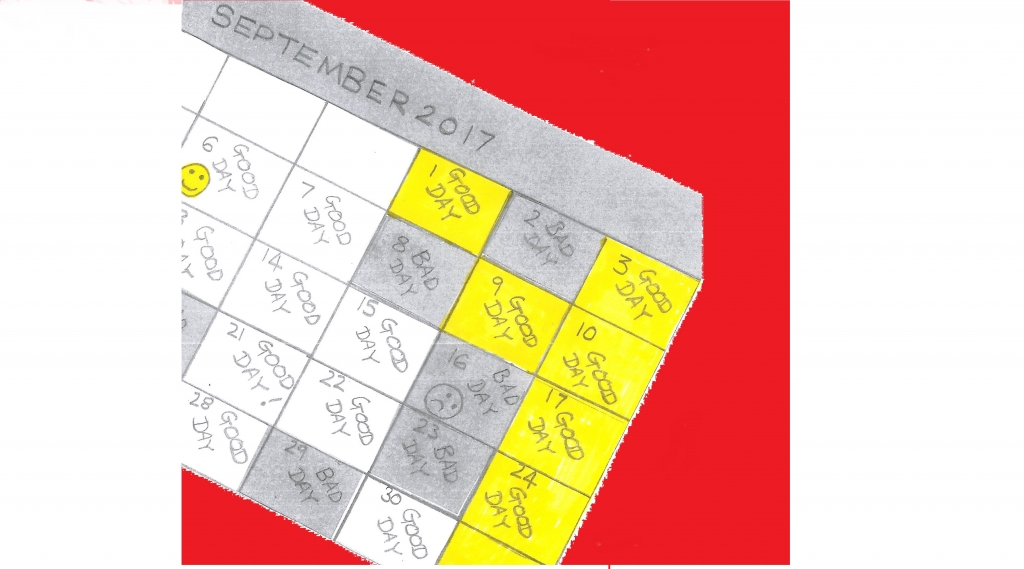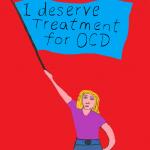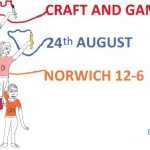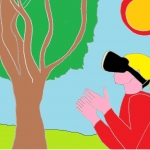Good Days and Bad Days
November 19th 2017
Guest post
The first time I ever encountered the real OCD in the media was watching the BBC’s 2013 two-part documentary, ‘Extreme OCD Camp’. My family saw it on iPlayer, and started watching out of bemused curiosity, expecting something light-hearted and possibly even funny. This is the attitude of so many people who don’t understand OCD. We quickly realised we were about to learn some home truths about the disorder, and as we sat watching, I realised that I recognised a lot of symptoms in myself, although admittedly not with the same severity.
My OCD simmered in the background for years, until mid-2016, when a combination of factors seemed to wake it up. I went from being able to handle the symptoms to them overwhelming me, and having three panic attacks in the space of four days. (It became quite an intense family holiday). My obsessions are broadly health-related, as well as some huge fears of failure, and I find that it is often much more predictable, but also more intense, when I’m at home. As anyone with OCD will tell you, some days are worse than others, often with surprising inconsistency, but it’s always there. Some of my obsessions and compulsions are more abstract ones I’ve not encountered in reading about other people’s experiences, and this originally made me question whether what I had was indeed OCD or not, so here is a list of some of mine, in the hopes someone else will feel less confused or alone:
· Contamination-related OCD. This is perhaps the most famous manifestation of the disorder, and although mine does take the form of concern about illness from contamination, it can also be somewhat more ‘metaphorical’, with washing my hands being a sort of remedy to what my OCD considers contamination. For example, if I hear or read, or – worse – touch a word associated with a serious illness or other thing I fear (stupidly I can’t type any examples right now because of OCD), OCD demands that I wash my hands. Similarly, if my fingertips brush a surface whilst picking something up, like my phone, I feel the urge to wash my hands, not out of fear of literal contagion, but out of a strange metaphorical association.
· Stepping on lines and straightening things. Another famous and occasionally stereotypical incarnation of OCD. Shoes must be straightened and parallel to lines on the floor, or I fear something bad will happen – nothing specific normally, but a general ‘bad thing’. This is the same of having both feet flat on the ground – no crossed legs for me. The rectification OCD suggests for failing to do this? You guessed it – washing my hands.
· I can’t touch certain parts of my body, specifically the inwards facing part of my shins, and under my eyes. As a wearer of contact lenses, this is particularly frustrating! This is a health-related concern and drives me mad, because it’s not easily ‘washed away’, no matter how temporary that ‘solution’ is.
· In addition, there are a few tiles and steps that I can’t stand on because my brain has decided they’re dangerous, despite the fact that they’re no different to any of the other tiles or steps.
OCD is especially vindictive as a disorder because it makes you believe it’s on your side. Getting ERP is hugely helpful, and I cannot recommend it highly enough for anyone who hasOCD.
However, I still have the worries that what if something actually does happen, and the OCD was right? I’m working hard to recover from OCD, as I’m a firm believer that you can, and I’m hugely inspired by the participants of the show ‘Extreme OCD Camp’. For all of us with OCD, there are good days and bad, but here’s to the good days becoming more and more frequent.







